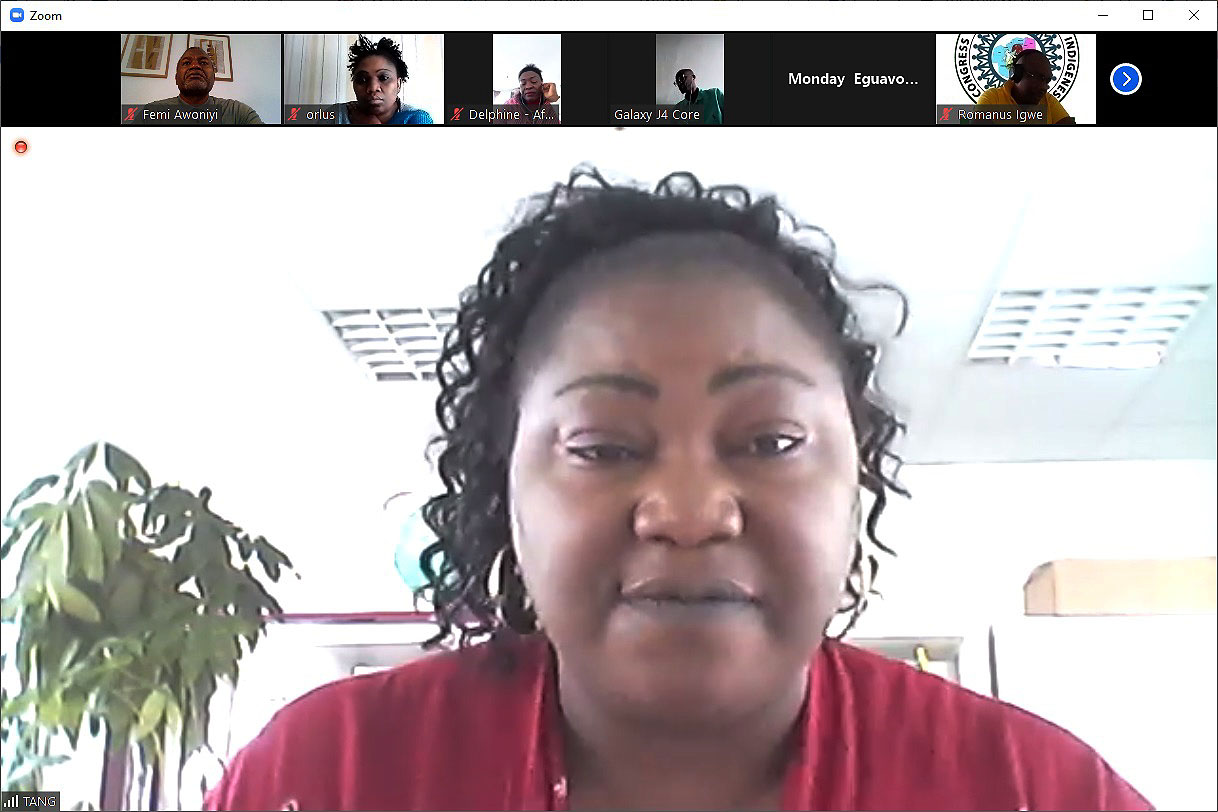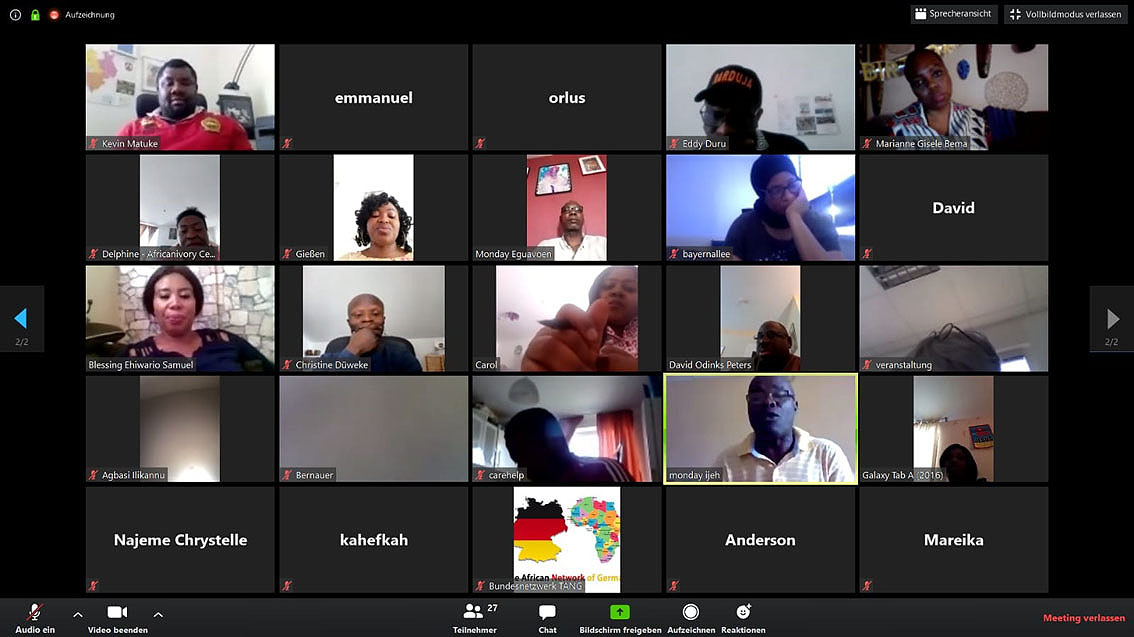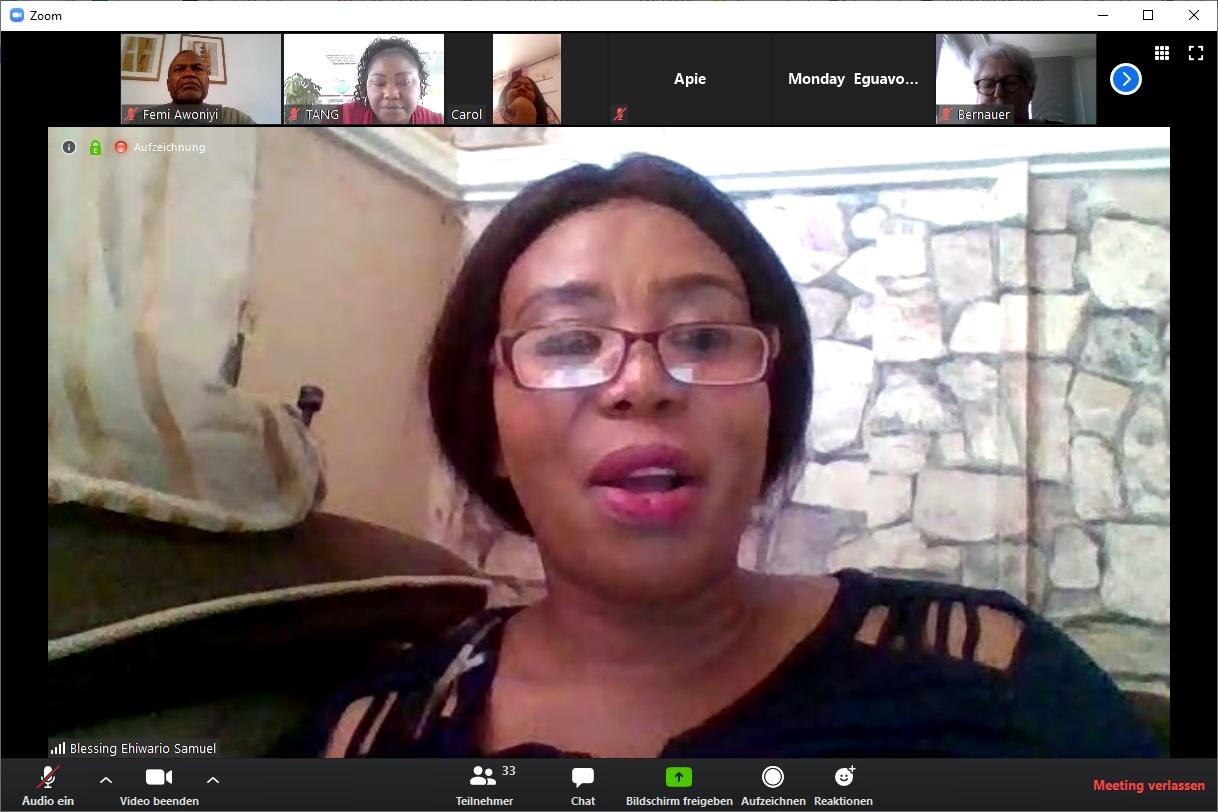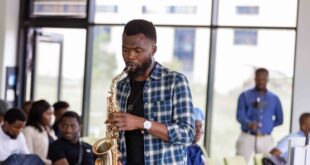Dr Sylvie Nantcha, chairman of The African Network of Germany (TANG), has called on Africans in the country to continue their strict observance of the coronavirus containment measures in force in the country. By doing so, they would not only protect themselves and their families, but also others.
She made the call on Thursday during the 5th video conference of members of the group, comprising of hundreds of African associations in Germany, on the health crisis in the country.
The virtual meeting, attended by 40 participants, reviewed the situation of the pandemic in Germany and deliberated on the next phase of TANG’s ongoing coronavirus sensitisation campaign in the African community after staking stock of its activities so far.

Nantcha cited official statistics on the corona crisis which show that Germany had 135,633 confirmed cases of the corona virus infection as of Thursday afternoon, while 77,000 people had recovered from the disease. The number of people who had died from the disease was 3,856.
In view of the updated measures, under which prevailing restrictions on public life were extended until 3 May and which were announced by Chancellor Angela Merkel on Wednesday, Dr Nantcha said as long as no medicine or vaccine against the coronavirus were available, all residents of the country would have to adapt their lifestyles to the current situation.
Members of TANG talked about their experiences creating greater awareness about the dangers of the disease in the African community.
Speakers warned against the circulation of fake news which they described as a hindrance to campaign efforts. Nantcha pointed to the disproportionately high African American casualties of COVID -19, the disease caused by the coronavirus infection, in the US, blaming it on the initial mistaken belief that the virus was not dangerous to Black people. This, she explained, led to many in the African American community not to observe preventive measures at the outbreak of the pandemic in the country.
However, the Black community had now woken up to the reality that the novel coronavirus affected all population groups and had been mobilising their members to comply with preventive measures.

Nantcha also spoke on religious gatherings, which continue to be prohibited under the updated measures announced by the chancellor on Wednesday.
In view of the forthcoming holy month of Ramadan, which begins on 23 April and ends on 23 May, she pointed out that the Central Council of Muslims in Germany had already called on Muslims in the country to observe their prayers at home instead of in mosques.
Nantcha said faith leaders were actively co-operating with the government on its efforts to contain the coronavirus as shown by the low-key way Easter festivities were marked in Germany this year.
The meeting, attended also by participants from Nigeria and the US, also discussed the use of protective masks to prevent infection. The German government’s updated measures do not make their use mandatory but “strongly recommended” them in shops and on public transportation.
Nantcha explained there were three types of face masks: homemade cloth face mask, surgical mask and N95 respirator. The last two masks were expensive and might be hard to find, she said, recommending that people could make their own masks.
Nantcha, echoing the government position, advised that face masks should be worn while in public places, such as in trains, trams or supermarkets, where it’s difficult to maintain a 2-meter distance from others. She however emphasised that face masks do not protect the wearer from infection but others.
“The good thing is, if we all wear masks, particularly where we can’t maintain the recommended minimum distance from each other, we will protect each other,” she commented. This is more so as most infected persons do not even know that they’re carrying the virus in their bodies.

TANG, as part of its campaign, also mobilises members to support vulnerable groups in the African community such as refugees by updating them on important public information on the pandemic but also supplying them with hygiene materials, foodstuff and drinks.
Nantcha said TANG’s campaign, which kicked off on 17 March, had reached about 1 million people in the Black community in Germany.
Monday Ijeh, a journalist with the News Agency of Nigeria, and Blessing Ehiwario Samuel, who runs a humanitarian organisation, joined the meeting from Abuja and they spoke about the situation in Nigeria. The third participant from abroad, Marianne Bema, who joined from California, spoke on the situation in the US as well as in her home country Cameroon.
Sadness enveloped the meeting when the death of Dr Samuel Ayim was announced by Hon Elizabeth Yeboah. Dr Ayim, who died of complications arising from a coronavirus infection, was well-known in the African community in the German state of North Rhine-Westphalia. A minute silence was observed in his honour by participants.
READ ALSO Coronavirus: Nigerians in diaspora called to help their people at home
The novel coronavirus emerged in China in December 2019 and has since then rapidly spread throughout the world. This virus is called SARS-CoV-2 and the disease that it causes is called COVID-19.
While some with COVID-19 have a mild illness, others may have trouble breathing, pneumonia and even respiratory failure. Older individuals and those with underlying health conditions are most at risk of developing serious illness when infected with the coronavirus.
Femi Awoniyi
READ MORE Coronavirus: These are Germany’s updated lockdown measures
 THE AFRICAN COURIER. Reporting Africa and its Diaspora! The African Courier is an international magazine published in Germany to report on Africa and the Diaspora African experience. The first issue of the bimonthly magazine appeared on the newsstands on 15 February 1998. The African Courier is a communication forum for European-African political, economic and cultural exchanges, and a voice for Africa in Europe.
THE AFRICAN COURIER. Reporting Africa and its Diaspora! The African Courier is an international magazine published in Germany to report on Africa and the Diaspora African experience. The first issue of the bimonthly magazine appeared on the newsstands on 15 February 1998. The African Courier is a communication forum for European-African political, economic and cultural exchanges, and a voice for Africa in Europe.

































